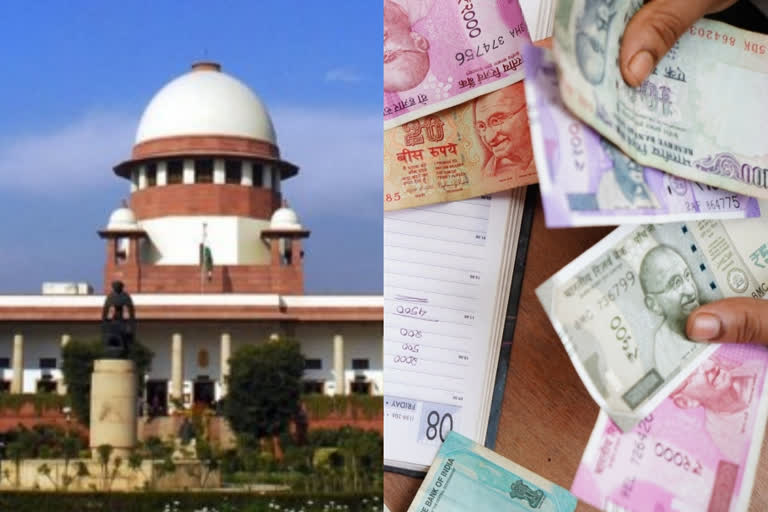New Delhi: The Union Government’s decision to bear the burden of interest waiver may not bring immediate relief for banks as there will be a time lag in the transfer of money from the government exchequer to the banks that are required to refund it to their customers following the Supreme Court order, said a banker.
The Supreme Court Wednesday directed the Centre to urgently implement its decision to waive the interest on the interest of those loan accounts that have been facing difficulty due to Covid-19 global pandemic and have availed the loan moratorium announced by the Reserve Bank in March this year.
The apex court fixed the date of November 2 for the next hearing while expressing its desire that the government will implement its decision by then. The Centre has already informed the top court that it will bear the cost of waiver of compound interest (interest on interest) which has been pegged at around Rs 6,500 crores.
Banks to face delayed payments from the government
“If the interest on interest is waived, I think the government of India will reimburse the respective banks, so it should not be a problem,” said a former MD & CEO of a scheduled commercial bank.
“The problem, in this case, is that there will be a time lag even if the government bears the burden,” the former banker told ETV Bharat.
In March this year, the Reserve Bank allowed banks and NBFCs to offer a three-month moratorium on loan repayments to their customers who were facing a cash crunch due to the Covid-19. Later, the RBI extended the loan moratorium by another three months, which expired on August-end this year.
However, a UP resident Gajendra Sharma challenged the terms and conditions of the loan moratorium as banks were charging interest on interest for the moratorium period.
The queries by the Supreme Court prompted the Centre to give an affidavit that interest on interest on the loans up to Rs 2 crore will be waived and the government will bear its burden.
Sources in the banking industry say that it is difficult to get money from the government.
“Because today the banks will have to refund it to their respective customers based on what the Supreme Court justice calls for. However, it is very difficult to get the money back from the government because the government itself doesn't have this kind of funding available with them,” said a banker.
COVID-19 crippled the Centre's finances
The Centre has been facing an unprecedented cash crunch due to the outbreak of Covid-19 global pandemic which has killed more than 1,00,000 people in the country and over 1 million people worldwide.
The SARS-CoV-2 virus also crippled India’s GDP which contracted by 23.9% in the first quarter while, according to the RBI’s projection, the annual contraction would be close to 10%. It has severely impacted the revenue collection projections made by finance minister Nirmala Sitharaman in this year’s budget.
Despite increasing its borrowing by an additional Rs 4.2 lakh crore this year, which will take its annual borrowing to a whopping Rs 12 lakh crore, the Centre expressed its inability to clear GST compensation dues of States and instead asked them to borrow to meet the shortfall in their revenue collection this year.
Sources in the banking industry feel that in such a situation it will be difficult for the Centre to immediately release the funds to the banks as promised.
“So the time lag will be there even if the government agrees to bear the loss of interest on interest,” said the banker.
“Private banks will face a little bit more problematic because, the total amount in case of interest on interest, comes about to Rs 6,000-6,500 crores, which is not a small amount.”
ALSO READ: New Education Policy lacks legal backing, says NALSAR V-C Faizan Mustafa



